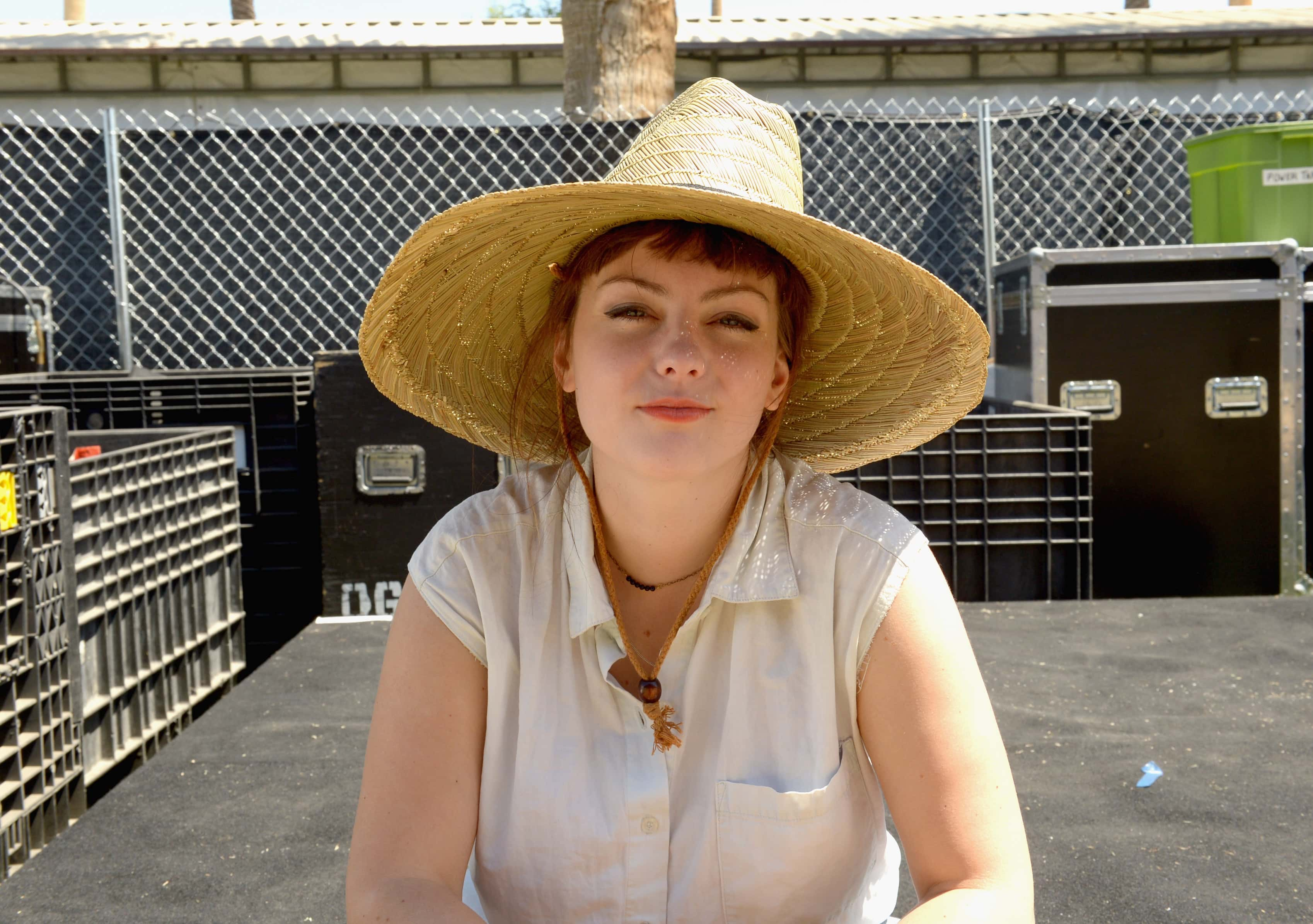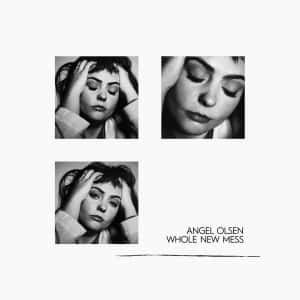'Whole New Mess' Review: Angel Olsen bares her soul and scars on this intimate precursor to 'All Mirrors'

The gifted indie rock singer-songwriter Angel Olsen will be releasing her fifth studio album 'Whole New Mess' on August 28 via Jagjaguwar Records. This intimate album serves as a companion piece to her previous album 'All Mirrors', a lush and cinematic masterpiece about love and loss which released in 2019. The backstory of 'Whole New Mess' is compelling, considering it was actually written during a difficult period of recovery for the 33-year-old artist.
She was left numb by a breakup with her former partner a few years ago and subsequently needed time to collect her thoughts and emotions. This 11-track offering thus serves as a time capsule from 2018. It's a record of her feelings at the time, where Olsen was in effect, composing songs while trying to maintain her composure as well.

As the singer explains, “I had gone through this breakup, but it was so much bigger than that — I’d lost friendships, too. When you get out of a relationship, you have to examine who you are or were in all the relationships.” Olsen also recalled, “I wanted to record when I was still processing these feelings. These are the personal takes, encapsulated in a moment.”
Nine of the songs from the 'Whole New Mess' recording sessions eventually emerged as elaborate, ornate and fully-fleshed-out arrangements on the album 'All Mirrors', but that doesn't mean this is a new album of old demo versions. This is actually a rare glimpse of the actual genesis behind a spellbinding creation. It's Olsen's heartbreaking starting point, a behind-the-curtain peek at minimalist songs that showcase her tender, raw and vulnerable depths, as she coaxed these songs out of herself in stark conditions.

In order to best articulate her troubled feelings, Olsen called on an old friend, Michael Harris, who was the head engineer at the famous Electro-Vox Studios in Los Angeles. Along with Harris, whom she considered a kindred spirit, Olsen journeyed to The Unknown, a small and isolated Catholic church on the fringe of the Pacific Ocean that Mount Eerie’s Phil Elverum and producer Nicholas Wilbur had converted into a recording studio in the small town of Anacortes, Washington.
Detached from the bustle and distractions of city life, Olsen tried to make sense of her emotional injuries, baring her soul and scars in an intimate series of recordings that incorporated just a few guitars and some microphones. The end result was 'Whole New Mess', which later evolved into the album 'All Mirrors'.

The opening number and title track, 'Whole New Mess', has Olsen in an introspective mood over a reverb-drenched soundscape and dissonant guitar chords. "Gettin’ back on track / When it all fades to black, I’ll be gettin’ back on track / Back to my own head, cleared out, till the time comes" she murmurs, almost to herself and no one in particular. By the time she says, "Make a whole new mess / Celebrate the best / Take a photo for the press again," it's clear that she's priming for a change of heart and mind, even if she hasn't fully convinced herself yet.
The next four songs are all present on 'All Mirrors' as fully furnished and varnished versions of themselves, but they're still arresting in this nascent form, since you can really feel the intensity in Olsen's heartfelt voice and bare-bones arrangements. 'Too Easy (Bigger Than Us)' has her reminiscing "I believe all that you say / I can see it in the way / We are walking through together / It's too easy, almost never / One could make me laugh forever / I'd do anything for you" before realizing "I'm not alone I'm not / The real truth of it all Is that I haven't lost / After the wait, come down / I looked around and found something else/ Something that was bigger than us."
In '(New Love) Cassette', she pledges her eternal allegiance to the ideal of love, or perhaps even self-love and acceptance — "When you're out of touch and you don't know how / Gonna give you my hands, gonna show you now / Gonna show you love all of the time."
On '(We Are All Mirrors)', Olsen's voice soars as she sings "All this trouble tryin' to catch right up with me / I keep movin', knowin' someday that I will be / Standin', facin', all mirrors are erasin' / Losin' beauty, at least at times it knew me."
'(Summer Song)' sees Olsen's gorgeous voice lifting to its lofty potential as she laments "Took a while but I made it through / If I could show you the hell I'd been to / Lost the light but there the sun was shining / Couldn't hide it and I wasn't trying / And all those people I thought knew me well / After all that time they couldn't tell / How I lost, my soul was just a shell / There was nothing left that I could lose."
We then have another previously unreleased song called 'Waving, Smiling' as Olsen croons over a gently picked guitar in waltz-like fashion. "I've made my bed / I've laid out all those tears / I've made my bed / Made up of all my fears... The sun is shining / I'm waving, smiling at love forever" she sings in her signature falsetto and vibrato.
The remainder of the album's songs also feature on 'All Mirrors', but if anything, they're more enjoyable to listen to in this stripped-down form, almost as if Angel Olsen is playing a solo concert in her bedroom just for our listening pleasure. 'Tonight (Without You)' sees her gently muse over a clean electric guitar — "Like how it's all coming clear / All the words that I hear / Like how I'm not in fear / Without you / And it's not because I don't love / Just don't have time to explain / All the things you think you've come to understand / About me."
On 'Lark Song', she once again amps up the intensity as she wails: "Hiding out inside my head, it's me again / It's no surprise I'm on my own now / Every time I turn to you I see the past / It's all that lasts and all I know how / Learn to look me in the eyes, yet I still don't feel it's me you're facing / Say your heart is always mine, what about old times, you can't erase them."
'Impasse (Workin' For The Name)' is both sedate and bittersweet, as she quips "Say what you want what you need, break it down / Take what's left and get out, tell them what it's about / You know best, don't you now? / I'm just living in my head / I'm just working for the name / I never lost anyone."
On the album stand-out 'Chance (Forever Love)', we're treated to a sublime bit of well-articulated songwriting, as Olsen wrestles with her conflicting emotions and confesses, "I wish I could un-see some things that gave me life / I wish I could un-know some things that told me so / I wish I could believe all that's been promised me / It's hard to say forever love / Forevers just so far / Why don't you say you're with me now / With all of your heart?"
The acoustic album closer, 'What It Is (What It Is)' almost sounds wry, almost like she's uncovered the truth behind the harsh realities of love. "It's easy when you're passionate / It's easy when you know your way around" she admits, before letting rip with the scathing "Knowing that you love someone / Doesn't mean you ever were in love / It's never easy to admit / That maybe you just want / Just to feel something again / You just wanted to forget / That your heart was full of s**t."

All things considered, this is Olsen putting herself on display in courageous fashion, showing the world her open wounds and raw nerves, as well as her evolving sense of love and relationships. If the lavish orchestral arrangements and cinematic scope of 'All Mirrors' were the sound of Olsen preparing her scars for the wider world to see, then 'Whole New Mess' is the sound of her first figuring out their location and shape, making sense of herself, for herself, before preparing to unveil these songs to the world. This is a record of startling depth and beauty, with a palpable sense of rawness and vulnerability that most artistes will find hard to match without flinching. “For music to continue to be interesting to me, I have to switch up the process sometimes, to go back to the beginning and see myself as a writer who can lose herself in a song because I don’t have to keep track of a band,” says Olsen. “Recording songs this way reminds me of why I make them in the first place.”










